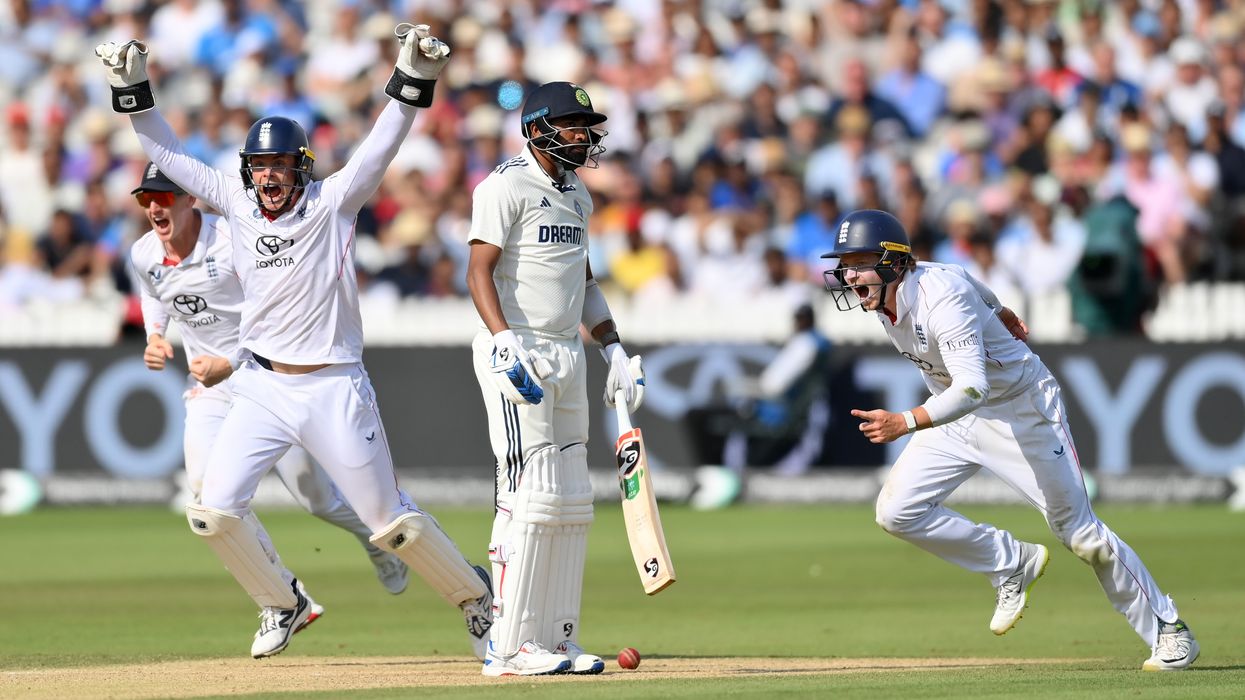Leaders from the UK, India, Bangladesh and Sri Lanka were among the first to pay tribute to Pope Francis, who died on Monday at the age of 88.
The Pope led the world’s 1.4 billion Catholics and was widely acknowledged for his efforts towards peace and social justice.
Prime minister Keir Starmer said Pope Francis showed “courageous” leadership and “never lost hope of a better world”. “His leadership in a complex and challenging time for the world and the church was courageous, yet always came from a place of deep humility,” Starmer said. UK government buildings will fly flags at half-mast for a day in his honour.
Deeply saddened to hear of the death of His Holiness Pope Francis. His tireless efforts to promote a world that is fairer for all will leave a lasting legacy. On behalf of the people of the United Kingdom, I share my sincerest condolences to the whole Catholic Church. pic.twitter.com/rrmadD29Dr
— Keir Starmer (@Keir_Starmer) April 21, 2025
King Charles said he was “deeply saddened” by the Pope’s death. He said he had been “greatly moved” to visit the pontiff earlier this month with Queen Camilla. “Through his work and care for both people and planet, he profoundly touched the lives of so many,” said the King.
The King’s message following the death of Pope Francis. pic.twitter.com/tnwvSoXcMh
— The Royal Family (@RoyalFamily) April 21, 2025
India’s prime minister Narendra Modi said he was “deeply pained” and described Pope Francis as “a beacon of compassion, humility and spiritual courage”. “I fondly recall my meetings with him and was greatly inspired by his commitment to inclusive and all-round development,” Modi said.
Deeply pained by the passing of His Holiness Pope Francis. In this hour of grief and remembrance, my heartfelt condolences to the global Catholic community. Pope Francis will always be remembered as a beacon of compassion, humility and spiritual courage by millions across the… pic.twitter.com/QKod5yTXrB
— Narendra Modi (@narendramodi) April 21, 2025
Bangladesh’s interim government also paid its respects. Nobel Peace Prize laureate Muhammad Yunus called the Pope a “true friend and kindred spirit”. “Pope Francis was a towering figure of moral clarity, humility, and compassion in our time,” said a statement from Yunus’s office. It added that the two had worked together on causes such as social justice and care for the natural world.
Sri Lankan president Anura Kumara Dissanayake said the Pope left a legacy of “compassion, justice and interfaith harmony”. “His unwavering commitment to peace, compassion and humanity has left an indelible mark on the world,” he said.
World leaders from across continents also shared their messages.
US president Donald Trump wrote, “Rest in Peace Pope Francis! May God Bless him and all who loved him!”
‘May God Bless him and all who loved him!’ – President Donald J. Trump 🙏 pic.twitter.com/DcWxl3xDC4
— The White House (@WhiteHouse) April 21, 2025
Ukrainian president Volodymyr Zelensky said Pope Francis “prayed for peace in Ukraine and for Ukrainians”. “We grieve together with Catholics and all Christians,” he said.
ALSO READ: From Sede Vacante to Habemus Papam, what happens after the pope dies
Russian president Vladimir Putin called Pope Francis a “wise” religious leader and “a consistent defender of the high values of humanism and justice”. He also said the Pope had promoted dialogue between the Russian Orthodox and Roman Catholic Churches.
Former US president Joe Biden said Pope Francis was “unlike any who came before him” and “one of the most consequential leaders of our time”. “I am better for having known him,” Biden wrote on X, sharing a photo of their meeting.
Argentine president Javier Milei, the Pope’s fellow countryman, said: “In spite of differences that today seem minor, to have known him in his goodness and wisdom was a true honour for me.”
Turkish president Recep Tayyip Erdogan described Pope Francis as a “respected statesman” and “a spiritual leader who placed great importance on dialogue between different faith groups”. He also noted the Pope’s role in highlighting humanitarian issues, including the Palestinian cause.
French president Emmanuel Macron said the Pope stood “on the side of the most vulnerable and the most fragile” and supported “brotherly humankind”.
Italian prime minister Giorgia Meloni said, “Pope Francis has returned to the Father’s home. It is deeply sad news, because a great man has left us.”
Israeli president Isaac Herzog said the Pope valued “fostering strong ties with the Jewish world and in advancing interfaith dialogue as a path toward greater understanding and mutual respect”.
Palestinian president Mahmud Abbas called Pope Francis a “faithful friend of the Palestinian people”. He noted that the Pope “recognised the Palestinian state and authorised the Palestinian flag to be raised in the Vatican”.
Spanish prime minister Pedro Sanchez said the Pope’s “commitment to peace, social justice and the most vulnerable leaves a profound legacy”.
Germany’s incoming chancellor Friedrich Merz expressed “great sorrow” and described Pope Francis as a man “guided by humility and faith”. He added that the Pope would be remembered for his “indefatigable commitment” to justice and reconciliation.
Kenyan president William Ruto said Pope Francis “exemplified servant leadership through his humility, his unwavering commitment to inclusivity and justice, and his deep compassion for the poor and the vulnerable”.
Philippine president Ferdinand Marcos said the Pope led “not only with wisdom but with a heart open to all, especially the poor and forgotten”.
(With inputs from agencies)



















